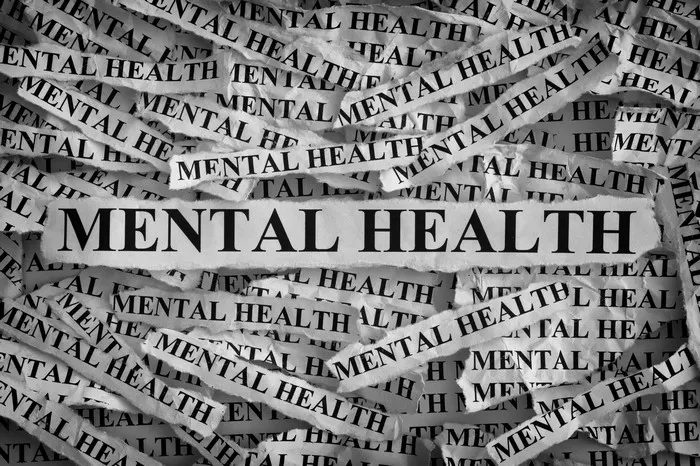For millions of allergy sufferers, the arrival of pollen season can mean weeks or even months of uncomfortable symptoms such as sneezing, congestion, and itchy eyes. While pollen allergies can be bothersome during the day, many individuals find that their symptoms worsen at night, disrupting their sleep and overall quality of life. In this comprehensive guide, we’ll explore the factors that contribute to nighttime pollen allergies, common triggers, and strategies for managing symptoms to achieve restful sleep.
Understanding Pollen Allergies
Before delving into why pollen allergies may be worse at night, it’s essential to understand the basics of pollen allergies and how they affect the body. Pollen is a fine powder produced by plants, such as trees, grasses, and weeds, as part of their reproductive process. When pollen is released into the air, it can be inhaled or come into contact with the eyes, nose, and throat, triggering an allergic reaction in susceptible individuals.
Pollen allergies, also known as hay fever or allergic rhinitis, occur when the immune system mistakenly identifies pollen as a harmful invader and releases histamines and other chemicals to combat it. These chemicals cause inflammation of the nasal passages, leading to symptoms such as sneezing, congestion, runny nose, and itchy eyes.
Why Are Pollen Allergies Worse at Night?
Several factors contribute to the exacerbation of pollen allergy symptoms at night:
Lower Pollen Levels During the Day: Pollen levels tend to be highest during the daytime when plants are actively releasing pollen into the air through processes such as pollination and wind dispersal. As a result, allergy symptoms may be more noticeable during the day when individuals are exposed to higher concentrations of pollen.
Settling of Pollen: As the day progresses and temperatures cool in the evening, pollen particles that were suspended in the air during the day begin to settle. This can lead to a higher concentration of pollen near the ground, particularly in areas with little airflow, such as bedrooms with closed windows.
Indoor Exposure: While spending time outdoors during the day can expose individuals to pollen allergens, indoor exposure to pollen can also occur, especially if pollen is tracked indoors on clothing, shoes, or pets. In the evening, when individuals return home and spend more time indoors, they may experience increased exposure to pollen trapped inside the home.
Sleeping Environment: Allergy symptoms, such as nasal congestion and postnasal drip, can be particularly bothersome at night when individuals are lying down to sleep. These symptoms can interfere with breathing and contribute to sleep disturbances, exacerbating the perception of allergy severity.
Cumulative Effect of Exposure: For some individuals, the cumulative effect of exposure to pollen throughout the day can result in a buildup of allergy symptoms by nighttime. This phenomenon, known as “priming,” occurs when repeated exposure to allergens sensitizes the immune system, leading to an exaggerated response upon subsequent exposure.
Common Pollen Allergy Triggers at Night
Several common triggers can exacerbate pollen allergy symptoms at night:
Indoor Allergens: In addition to outdoor pollen, indoor allergens such as dust mites, pet dander, and mold spores can worsen allergy symptoms at night, especially in environments with poor ventilation or inadequate cleaning practices.
Bedding Materials: Allergens can accumulate in bedding materials such as pillows, mattresses, and blankets, exacerbating allergy symptoms during sleep. Choosing hypoallergenic bedding and regularly washing bedding in hot water can help reduce allergen exposure.
Airborne Irritants: Irritants such as cigarette smoke, strong odors, and air pollution can irritate the respiratory tract and exacerbate allergy symptoms, particularly at night when individuals are in enclosed spaces such as bedrooms.
Humidity Levels: High humidity levels can promote the growth of mold and dust mites, two common indoor allergens that can exacerbate allergy symptoms. Using a dehumidifier to maintain indoor humidity levels between 30% and 50% can help reduce allergen exposure.
Stress and Anxiety: Stress and anxiety can weaken the immune system and increase susceptibility to allergy symptoms. For some individuals, nighttime can be a time of increased stress or worry, leading to heightened allergy symptoms.
Strategies for Managing Nighttime Pollen Allergies
While nighttime pollen allergies can be bothersome, there are several strategies individuals can use to manage symptoms and achieve restful sleep:
Monitor Pollen Counts: Check local pollen forecasts and try to minimize outdoor activities during times when pollen levels are highest, typically in the early morning and evening.
Keep Windows Closed: To prevent pollen from entering the home, keep windows and doors closed during peak pollen times and use air conditioning to filter and cool indoor air.
Use HEPA Filters: High-efficiency particulate air (HEPA) filters can help remove airborne allergens, including pollen, from indoor air. Consider using HEPA filters in bedrooms and other commonly used areas of the home.
Practice Good Sleep Hygiene: Establishing a bedtime routine and creating a comfortable sleep environment can promote restful sleep despite allergy symptoms. This includes keeping the bedroom cool, dark, and quiet, using hypoallergenic bedding, and avoiding electronic devices before bedtime.
Take Medications as Directed: Over-the-counter or prescription allergy medications, such as antihistamines, nasal corticosteroids, and decongestants, can help alleviate allergy symptoms and improve sleep quality. It’s essential to follow the advice of a healthcare professional when using these medications.
Consider Immunotherapy: For individuals with severe or persistent pollen allergies, allergen immunotherapy, also known as allergy shots or sublingual immunotherapy (SLIT), may be recommended. These treatments can desensitize the immune system to specific allergens over time, reducing the severity of allergy symptoms.
Consult a Healthcare Professional: If allergy symptoms persist despite self-care measures, or if symptoms are severe and affecting quality of life, it’s important to consult a healthcare professional for further evaluation and treatment recommendations.
Conclusion: Finding Relief from Nighttime Pollen Allergies
In conclusion, nighttime pollen allergies can be disruptive and uncomfortable, interfering with sleep and overall quality of life for allergy sufferers. By understanding the factors that contribute to nighttime allergy symptoms and implementing strategies to manage allergen exposure and alleviate symptoms, individuals can achieve restful sleep and better manage their pollen allergies. With proper care and attention, it is possible to find relief from nighttime pollen allergies and enjoy a good night’s sleep once again.
[inline_related_posts title=”You Might Be Interested In” title_align=”left” style=”list” number=”6″ align=”none” ids=”7034,6980,6983″ by=”categories” orderby=”rand” order=”DESC” hide_thumb=”no” thumb_right=”no” views=”no” date=”yes” grid_columns=”2″ post_type=”” tax=””]
































